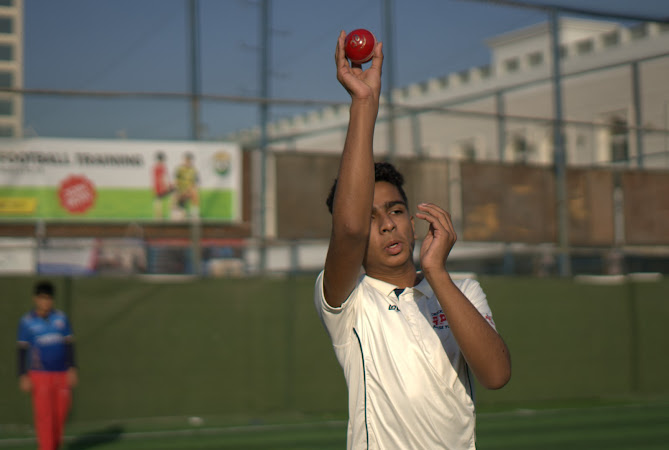Insights from the Cricket Nets
The Art of Net Practice: Strategies for Effective Skill Development.
Net practice is an integral part of cricket training, providing players with the opportunity to refine their skills, work on specific aspects of their game, and simulate match-like conditions. However, to maximize the benefits of net practice, it's important to approach it strategically and with a clear focus. By implementing effective strategies, players can enhance their skill development and make significant progress in their game.
From nets to matches, bridging the gap for enhanced game performance is crucial. One of the key strategies for effective net practice is to set specific goals for each session. By identifying areas of improvement or skills to develop, players can tailor their practice sessions accordingly. Whether it's working on footwork, mastering a particular shot, or practicing specific bowling variations, having clear objectives helps maintain focus and ensures productive training. It's important to communicate these goals with coaches or mentors who can provide guidance and monitor progress.
To simulate match-like conditions, it's beneficial to structure net practice sessions that incorporate game scenarios. This involves replicating different game situations, such as setting fielding positions, bowling to specific line and length, or simulating batting partnerships. By practicing in a realistic and purposeful manner, players can develop the ability to adapt to different match scenarios and make better decisions on the field. Additionally, rotating bowlers and providing different types of deliveries during batting sessions can help players become accustomed to facing different bowling styles.
Video analysis is a powerful tool that can enhance skill development during net practice. Recording practice sessions and reviewing the footage allows players to analyze their techniques, identify areas for improvement, and make necessary adjustments. This visual feedback can provide valuable insights into batting stance, bowling action, footwork, and other technical aspects of the game. Working with coaches or mentors to analyze the footage and receive feedback can further accelerate skill development.
While it's important to focus on individual skills during net practice, it's equally crucial to incorporate team-oriented drills and activities. Practicing fielding drills, relay throwing, and communication exercises can improve teamwork and coordination. These drills help develop a sense of unity and understanding among players, fostering a cohesive and efficient team on the field. Net practice can also include simulated match situations, such as practicing run chases or defending specific targets, to develop the ability to perform under pressure as a team.
Another effective strategy in net practice is to introduce pressure situations. By incorporating time constraints, target-oriented drills, or competitive scenarios, players can experience and adapt to the pressure that arises in real match situations. This helps in building mental resilience and improving decision-making under pressure. Practicing in high-intensity environments helps players develop composure, confidence, and the ability to perform at their best when it matters the most.
Varying the intensity and difficulty level of net practice drills is essential for skill development. While it's important to focus on technical aspects, incorporating challenging and game-like situations can further enhance performance. For batsmen, facing bowlers of different speeds and bowling lengths can help improve shot selection and adaptability. Similarly, bowlers can practice variations and target specific areas consistently. Introducing competitiveness within the team during net practice, such as scoring systems or rewards for achievements, can also motivate players and add excitement to the sessions.
During net practice, it's important to maintain a positive and focused mindset. Consistent effort, perseverance, and self-belief are key to skill development. Encouraging a supportive and constructive practice environment, where players motivate and learn from each other, can foster a positive atmosphere that enhances learning and growth. It's also essential to listen to feedback from coaches, mentors, and teammates, as their insights can help identify areas for improvement and offer valuable guidance.




Comments
Post a Comment